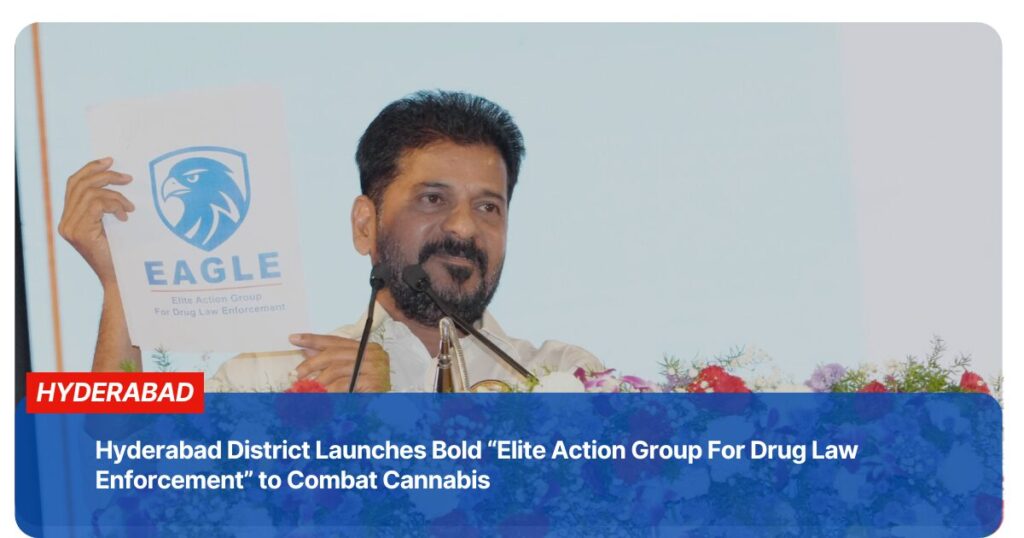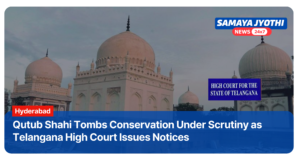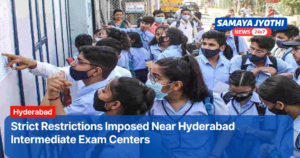- Home
- India, Latest News
- Telangana drug enforcement elite action group: 5 Surprising Steps in Hyderabad’s Bold New Fight
Telangana drug enforcement elite action group: 5 Surprising Steps in Hyderabad's Bold New Fight
Telangana drug enforcement elite action group represents a decisive step by Chief Minister Shri Revanth Anumula in Hyderabad district’s ongoing struggle against drug proliferation. This article examines the official announcement, organization, goals, challenges, and community response, and explores how the #Eagle unit aims to ensure even a single cannabis plant doesn’t escape detection. The launch signals a fresh, unwavering determination to build a healthy, drug‑free Telangana, competitive on the global stage.
Hyderabad, the capital district, has witnessed rising concerns over youth involvement in substance abuse. Reports of cannabis cultivation in peripheral rural areas and urban fringes prompted the government to act. Chief Minister Revanth Anumula emphasized that Telangana—a state that once kindled transformative movements—must not allow itself to become a bottleneck for the drug epidemic. Hence, the call for the formation of an elite, statewide unit dedicated to aggressive cannabis detection and eradication
Formation of #Eagle — Structure and Mandate
The newly formed Elite Action Group For Drug Law Enforcement (#Eagle) is tasked with statewide jurisdiction, empowered to operate across all districts, beginning with Hyderabad. Staffed by top-tier state police officers, conservation department experts, forensic chemists, and intelligence analysts, #Eagle combines field enforcement, intelligence gathering, and inter‑agency coordination. Its mission: to detect and destroy cannabis plants—even isolated cases—and prosecute offenders under the strictest provisions of the existing Narcotic Drugs and Psychotropic Substances (NDPS) Act.
Chief Minister’s Vision and Call to Cooperation
At the public unveiling, Chief Minister Revanth Anumula appealed to citizens across Telangana to “cooperate wholeheartedly with the government’s resolve to build a healthy, drug‑free Telangana that can compete with the world.” He underscored that targeted, community‑engaged efforts were not punitive but protective—shielding youth from addiction. According to him, the success of #Eagle hinges not only on enforcement but also on community intelligence, social activism, and rehabilitation programs.
Operational Tactics — From Detection to Prosecution
#Eagle’s strategy includes deploying drone surveillance in remote areas, routine raids on suspected cultivation sites, and the establishment of mobile labs for on-site cannabis verification. Special teams will monitor marketplaces, agricultural supply chains, and digital forums. Coordinated sting operations and undercover work will connect small-time cultivators to larger trafficking networks. Once plants are seized, samples will undergo forensic testing, and offenders will be fast-tracked through a specialized NDPS tribunal.
Interdepartmental & Community Collaboration
The unit works collaboratively with forest, agriculture, revenue, and rural development departments. Farmers will receive education on legal penalties and incentives for crop-switching. NGOs, educational institutions, and local councils in Hyderabad and other districts will be mobilized to spread awareness. A toll-free number and online portal enable citizens to report sightings or suspicious activity. Community policing forums are to be revitalized to ensure local engagement and trust.
Challenges and Criticisms
Despite widespread approval, some observers warn of possible civil‑rights concerns. They caution that aggressive searches risk infringing on landowners’ privacy and could intimidate vulnerable populations. Critics also question whether a focus on cannabis overlooks more serious issues like synthetic drug proliferation. The government counters that the initial focus on cannabis sets the stage; #Eagle’s scope can expand later. Transparency in operations, judicial oversight, and robust grievance channels are planned to mitigate risks
Rehabilitation & Preventive Measures
Roaming beyond enforcement, the government is committing resources to treatment and rehab programs for individuals found using or cultivating cannabis. District-level rehabilitation centers will offer counseling, vocational training, and support for re-integration. Schools and colleges in Hyderabad will host anti-drug campaigns, workshops, and youth leadership programs. The ultimate goal remains a drug‑free Telangana ecosystem—where prevention and rehabilitation are as central as enforcement.
Comparative Outlook & Global Context
Telangana’s #Eagle mirrors similar elite anti-drug units in other states and countries, though its focus on detecting even a single cannabis plant is unusually stringent. Internationally, elite units like Colombia’s anti-narcotics force or U.S. DEA work at higher scales; Telangana’s strategy is granular by comparison. Experts say this granular approach can be effective in denial-of-entry strategy, especially when combined with community reporting and real-time intelligence.
Conclusion — A New Chapter for Hyderabad and Beyond
With the launch of the Telangana drug enforcement elite action group, Hyderabad district takes center stage in a renewed statewide anti-drug campaign. The initiative combines enforcement, community engagement, rehabilitation, and prevention—rooted in a visionary call by Chief Minister Revanth Anumula. Only time will reveal #Eagle’s effectiveness, but its formation is a bold step toward a drug‑free Telangana that aspires to stand proud in a healthy, globally competitive future.
Click for more latest news. Also get top headlines and latest news from India and around the world at samaya jyothi










